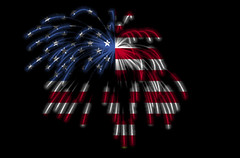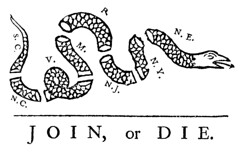| 13771850905 | The French and Indian War | 1754-1763 War between French and British in American colonies part of 7 years | 0 | |
| 13771850906 | The Proclamation of 1763 | Line drawn by British Parliament, colonists not allowed to settle past Appalachian mountains |  | 1 |
| 13771850907 | Stamp Act | 1765 direct tax on a stamp that must be put on paper, office documents, etc. | 2 | |
| 13771850908 | Common Sense | 1776 pamphlet written by Thomas Paine to get people to want independence | 3 | |
| 13771850909 | The Declaration Of Independence | 1776 document written by colonist elites to British King and Parliament stating independence and what all was wrong with British rule and the King |  | 4 |
| 13771850910 | Battle of Saratoga | Head to head battle between the British and Americans in country side, Americans win by a lot and show they have a chance |  | 5 |
| 13771850911 | French American Alliance | Formed after battle of Saratoga when Americans proved to French they can win and French are allies because they want to damage an age old enemy |  | 6 |
| 13771850912 | Treaty of Paris | 1783 ended the American Revolutionary War Granted the land British gave Indians as American land now American colonies recognized as their own independent country |  | 7 |
| 13771850913 | Enlightenment | A movement in the 18th century that advocated the use of reason in the reappraisal of accepted ideas and social institutions. |  | 8 |
| 13771850914 | John Locke | English philosopher who advocated the idea of a "social contract" in which government powers are derived from the consent of the governed and in which the government serves the people; also said people have natural rights to life, liberty and property. |  | 9 |
| 13771850915 | George Whitefield | Credited with starting the Great Awakening, also a leader of the "New Lights." |  | 10 |
| 13771850916 | Great Awakening | a religious movement that became widespread in the American colonies in the 1730s and 1740s |  | 11 |
| 13771850917 | Ben Franklin | A delegate from Pennsylvania and proposed the "Albany Plan of the Union" as a way to strengthen colonies. |  | 12 |
| 13771850918 | representation | A basic principle of traditional democratic theory that describes the relationship between the few leaders and the many followers. |  | 13 |
| 13771850919 | Sugar Act of 1764 | An act that raised tax revenue in the colonies for the crown. It also increased the duty on foreign sugar imported from the West Indies. |  | 14 |
| 13771850920 | Virtual Representation | The political theory that a class of persons is represented in a lawmaking body without direct vote. |  | 15 |
| 13771850921 | Quartering Act of 1765 | Act forcing colonists to house and supply British forces in the colonies; created more resentment; seen as assault on liberties. |  | 16 |
| 13771850922 | Townshend Acts | A tax that the British Parliament passed in 1767 that was placed on leads, glass, paint and tea |  | 17 |
| 13771850923 | Popular Sovereignty | A belief that ultimate power resides in the people. |  | 18 |
| 13771850924 | Thomas Jefferson | Wrote the Declaration of Independence |  | 19 |
| 13771850925 | Second Continental Congress (1775) | Managed the colonial war effort, and moved incrementally towards independence - finally adopting the *Declaration of Independence* in 1776. |  | 20 |
| 13771850926 | Sons of Liberty | A radical political organization for colonial independence which formed in 1765 after the passage of the Stamp Act. They incited riots and burned the customs houses where the stamped British paper was kept. After the repeal of the Stamp Act, many of the local chapters formed the Committees of Correspondence which continued to promote opposition to British policies towards the colonies. The Sons leaders included Samuel Adams and Paul Revere. |  | 21 |
| 13771850927 | Patriots | (also known as Revolutionaries, Continentals, Rebels, or American Whigs) were those colonists of the Thirteen Colonies who rejected British rule during the American Revolution and declared the United States of America as an independent nation in July 1776. |  | 22 |
| 13771850928 | Tories/Loyalists | Colonists who favored remaining under British control |  | 23 |
| 13771850929 | Bill of Rights | The first ten amendments to the Constitution |  | 24 |
| 13771850930 | Articles of Confederation | 1st Constitution of the U.S. 1781-1788 (weaknesses-no executive, no judicial, no power to tax, no power to regulate trade) |  | 25 |
| 13771850931 | Shay's Rebellion | A 1787 rebellion in which ex-Revolutionary War soldiers attempted to prevent foreclosures of farms as a result of high interest rates and taxes |  | 26 |
| 13771850932 | Republican Motherhood | The idea that American women had a special responsibility to cultivate "civic virtue" in their children |  | 27 |
| 13771850933 | Northwest Ordinance | Enacted in 1787, it is considered one of the most significant achievements of the Articles of Confederation. It established a system for setting up governments in the western territories so they could eventually join the Union on an equal footing with the original 13 states |  | 28 |
| 13771850934 | Federalist Papers | A collection of 85 articles written by Alexander Hamilton, John Jay, and James Madison under the name "Publius" to defend the Constitution in detail. |  | 29 |
| 13771850935 | Federalists | Supported a strong central government and ratification of the Constitution |  | 30 |
| 13771850936 | Antifederalists | those who favor a weaker national government |  | 31 |
| 13771850937 | Great Compromise | 1787; This compromise was between the large and small states of the colonies. The Great Compromise resolved that there would be representation by population in the House of Representatives, and equal representation would exist in the Senate. Each state, regardless of size, would have 2 senators. All tax bills and revenues would originate in the House. This compromise combined the needs of both large and small states and formed a fair and sensible resolution to their problems. |  | 32 |
| 13771850938 | whiskey rebellion | In 1794, farmers in Pennsylvania rebelled against Hamilton's excise tax on whiskey, and several federal officers were killed in the riots caused by their attempts to serve arrest warrants on the offenders. In October, 1794, the army, led by Washington, put down the rebellion. The incident showed that the new government under the Constitution could react swiftly and effectively to such a problem, in contrast to the inability of the government under the Articles of Confederation to deal with Shay's Rebellion. |  | 33 |
| 13771850939 | XYZ Affair | A 1797 incident in which French officials demanded a bribe from U.S. diplomats |  | 34 |
| 13771850940 | Bank of the United States (BUS) | Proposed by Alexander Hamilton as the basis of his economic plan. He proposed a powerful private institution, in which the government was the major stockholder. This would be a way to collect and amass the various taxes collected. It would also provide a strong and stable national currency. Jefferson vehemently opposed the bank; he thought it was un-constitutional. nevertheless, it was created. This issue brought about the issue of implied powers. It also helped start political parties, this being one of the major issues of the day. |  | 35 |
| 13771850941 | Alien and Sedition Acts | Series of four laws enacted in 1798 to reduce the political power of recent immigrants |  | 36 |
AP US History Period 3 Flashcards
Primary tabs
Need Help?
We hope your visit has been a productive one. If you're having any problems, or would like to give some feedback, we'd love to hear from you.
For general help, questions, and suggestions, try our dedicated support forums.
If you need to contact the Course-Notes.Org web experience team, please use our contact form.
Need Notes?
While we strive to provide the most comprehensive notes for as many high school textbooks as possible, there are certainly going to be some that we miss. Drop us a note and let us know which textbooks you need. Be sure to include which edition of the textbook you are using! If we see enough demand, we'll do whatever we can to get those notes up on the site for you!

